Oil pulling is a traditional oral hygiene practice that involves swishing a tablespoon of oil in the mouth for a few minutes, and then spitting it out. The oil is said to pull out toxins, bacteria, and plaque from the teeth and gums, improving oral health and overall wellness. Oil pulling has its roots in Ayurveda, the ancient system of medicine from India, where it is known as Kavala or Gandusha. Oil pulling has gained popularity and modern adoption in recent years, as more people seek natural and holistic ways to care for their health.
The Process of Oil Pulling
Oil pulling is a simple and inexpensive procedure that can be done at home. Here are the basic steps to follow:
- Selection of Oil: The most commonly used oils for oil pulling are sesame, coconut, and sunflower oils. These oils have antibacterial, anti-inflammatory, and antioxidant properties that can benefit oral health. Some people also add essential oils, such as peppermint, clove, or tea tree, to enhance the flavor and effects of oil pulling.
- Amount of Oil: The recommended amount of oil for oil pulling is one tablespoon or about 15 ml. This is enough to fill the mouth without causing discomfort or gagging. If you find it difficult to swish this much oil, you can start with a smaller amount and gradually increase it over time.
- Duration of Swishing: The optimal duration of oil pulling is 15 to 20 minutes, according to Ayurvedic texts. This is the time needed for the oil to mix with saliva and draw out the impurities from the mouth. However, if you are new to oil pulling, you can start with a shorter duration, such as 5 or 10 minutes, and work your way up to the desired time. You should swish the oil gently and continuously, moving it around the mouth and between the teeth.
- Spit or Swallow?: After swishing the oil for the desired time, you should spit it out into a trash can or a sink. Do not swallow the oil, as it may contain harmful bacteria and toxins that you want to get rid of. Rinse your mouth with warm water or salt water, and brush your teeth as usual.

Scientific Basis of Oil Pulling
Oil pulling is not just a folk remedy, but a practice that has some scientific evidence to support its benefits. Here are some of the main findings from research studies on oil pulling:
- Oral Health Benefits: Oil pulling can improve oral health by reducing plaque, preventing gingivitis, and impacting bad breath. Plaque is a sticky film of bacteria that accumulates on the teeth and causes tooth decay and gum disease. Gingivitis is a mild form of gum disease that causes inflammation, bleeding, and swelling of the gums. Bad breath, or halitosis, is a common problem that affects many people and is often caused by poor oral hygiene, food particles, or infections. Oil pulling can help reduce these oral health issues by removing the bacteria and plaque from the mouth, and by creating a protective layer of oil on the teeth and gums. Several studies have shown that oil pulling can significantly reduce plaque and gingivitis, and improve the quality of breath, compared to placebo or conventional mouthwash.
- Potential Detoxification Effects: Oil pulling may also have some detoxification effects, as it is believed to remove toxins from the blood and the body through the saliva. The mechanism of toxin removal is not fully understood, but some theories suggest that the oil acts as a magnet for the fat-soluble toxins, or that the oil stimulates the lymphatic system and the immune system. Some research studies have found that oil pulling can reduce the levels of certain toxins, such as heavy metals, in the saliva and the blood. However, more research is needed to confirm the validity and the extent of these effects.
Oil pulling is an ancient practice that has modern benefits for oral health and wellness. By following a simple and natural procedure, you can improve your oral hygiene, prevent dental problems, and possibly detoxify your body. Oil pulling is safe and easy to do, and can be a part of your daily routine. Try it for yourself and see the results!
An Ayurvedic Perspective and Scientific Evidence
Oil pulling is not only a scientific practice but also a spiritual one. According to Ayurveda, the ancient system of medicine from India, oil pulling is a way of balancing the doshas, or the vital energies, in the body. Oil pulling can also enhance the overall well-being of a person, by harmonizing the mind, body, and spirit. In this article, we will explore the Ayurvedic perspective of oil pulling, as well as the clinical studies and research that support its benefits.
Ayurvedic Perspective
Ayurveda is based on the belief that everything in the universe is composed of five elements: earth, water, fire, air, and ether. These elements combine to form three doshas, or biological energies, that govern the physical and mental aspects of a person. The three doshas are vata (air and ether), pitta (fire and water), and kapha (earth and water). Each person has a unique constitution, or Prakriti, that determines their dominant dosha, as well as their strengths and weaknesses.
Oil pulling is a practice that can balance the doshas, especially Kapha, which is responsible for the health of the mouth and the throat. By swishing oil in the mouth, the kapha dosha is stimulated and cleansed, removing the excess mucus, phlegm, and toxins that accumulate in the oral cavity. Oil pulling can also balance the other doshas, by soothing the vata dosha, which is associated with dryness, and by cooling the pitta dosha, which is linked to inflammation.
Oil pulling is not only beneficial for oral health but also for the overall well-being of a person. According to Ayurveda, the mouth is the gateway to the body, and the health of the mouth reflects the health of the entire system. By improving oral hygiene, oil pulling can also improve digestion, immunity, circulation, the skin, the mood, and the mental clarity of a person. Oil pulling can also enhance the spiritual aspect of a person, by opening the throat chakra, or the energy center of communication, expression, and creativity.
Clinical Studies and Research
Oil pulling is not a mere superstition, but a practice that has been validated by scientific research. Several clinical studies have been conducted to investigate the effects of oil pulling on various aspects of oral health and general health. Here are some of the main findings from these studies:
- Oral Health: Oil pulling can improve oral health by reducing plaque, preventing gingivitis, and impacting bad breath, as we discussed in the previous article. Oil pulling can also reduce the incidence of dental caries, or cavities, by inhibiting the growth of Streptococcus mutans, the bacteria that cause tooth decay. Oil pulling can also improve the oral microbiome, or the balance of beneficial and harmful bacteria in the mouth, by increasing the diversity and richness of the bacterial species.
- General Health: Oil pulling may also have some positive effects on general health, by reducing the levels of certain biomarkers of inflammation, oxidative stress, and metabolic syndrome. Inflammation is a natural response of the body to injury or infection, but chronic inflammation can lead to various diseases, such as diabetes, cardiovascular disease, and cancer. Oxidative stress is a condition where the body produces more free radicals than antioxidants, which can damage the cells and the DNA. Metabolic syndrome is a cluster of risk factors, such as high blood pressure, high blood sugar, high cholesterol, and abdominal obesity, that increase the chances of developing diabetes and cardiovascular disease. Oil pulling can lower the levels of these biomarkers, by modulating the immune system, the antioxidant system, and the lipid profile of the body.
However, oil pulling is not a panacea, and it has some criticisms and limitations. Some of the critiques and drawbacks include:
- Lack of Quality and Quantity of Studies: Most of the studies on oil pulling are small-scale, short-term, and poorly designed, which limits their validity and reliability. There is a need for more rigorous, large-scale, long-term, and randomized controlled trials, to establish the efficacy and safety of oil pulling, and to compare it with other oral hygiene methods, such as brushing, flossing, and mouthwash.
- Lack of Mechanism and Evidence of Detoxification: The mechanism of how oil pulling works is not fully understood, and there is no conclusive evidence of its detoxification effects. The claim that oil pulling can remove toxins from the blood and the body through saliva is not supported by scientific data, and it contradicts the basic principles of physiology and pharmacology. The saliva does not have the capacity or the function to transport or eliminate toxins from the body, and the oil does not have the ability or affinity to bind or extract toxins from the blood or the tissues.
- Lack of Standardization and Regulation: There is no standardization or regulation of the practice of oil pulling, such as the type, quality, quantity, and duration of the oil, the frequency and timing of the procedure, and the safety precautions and contraindications. This can lead to inconsistency, variability, and unpredictability of the results, as well as potential adverse effects, such as allergic reactions, nausea, vomiting, diarrhea, headache, and lipid pneumonia.
Despite these criticisms and limitations, oil pulling is a promising practice that has some emerging trends and future research directions. Some of the emerging trends and future research directions are:
- Integration of Oil Pulling with Other Oral Hygiene Methods: Oil pulling can be integrated with other oral hygiene methods, such as brushing, flossing, and mouthwash, to enhance oral health and prevent dental problems. Oil pulling can be done before or after brushing, or as a substitute for mouthwash, depending on the preference and convenience of the person. Oil pulling can also be combined with other natural ingredients, such as baking soda, salt, turmeric, or charcoal, to improve the whitening, cleansing, and antibacterial effects of the oil.
- Exploration of Oil Pulling for Other Health Conditions: Oil pulling can be explored for other health conditions, such as diabetes, cardiovascular disease, cancer, and autoimmune diseases, that may have a link to oral health and inflammation. Oil pulling can be used as an adjunct or an alternative therapy, to complement or replace the conventional treatments, depending on the severity and the stage of the disease. Oil pulling can also be used as a preventive or a supportive measure, to reduce the risk or the progression of the disease, by improving the oral health and the general health of the person.
- Investigation of Oil Pulling for Psychological and Spiritual Benefits: Oil pulling can be investigated for psychological and spiritual benefits, such as stress reduction, mood enhancement, cognitive improvement, and creativity stimulation. Oil pulling can be used as a form of meditation, relaxation, or self-care, to calm the mind, soothe the emotions, and nourish the spirit. Oil pulling can also be used as a tool for self-expression, communication, and manifestation, to align the thoughts, words, and actions with the goals and the desires of the person.
How to Incorporate Oil Pulling into Daily Routine
Oil pulling is a simple and easy practice that can be incorporated into the daily routine of anyone who wants to improve their oral health and their overall well-being. Here are some tips and suggestions on how to incorporate oil pulling into your daily routine:
- Frequency and Timing: The ideal frequency and timing of oil pulling depends on the individual preference and the desired outcome of the person. However, a general guideline is to do oil pulling once or twice a day, preferably in the morning or before bedtime, on an empty stomach, or at least two hours after a meal. Oil pulling can be done for 15 to 20 minutes, or as long as comfortable, but not more than 30 minutes, as it may cause reabsorption of the toxins.
- Safety Precautions: Oil pulling is a safe and harmless practice, but it may have some minor side effects or contraindications for some people. Some of the safety precautions are to avoid oil pulling if you have any allergies or sensitivities to the oil or the additives if you have any dental implants or fillings that may loosen or dislodge, if you have any chronic or acute infections or inflammations in the mouth or the throat, or if you are pregnant or breastfeeding. You should also consult your doctor or dentist before starting oil pulling, especially if you have any medical or dental conditions or medications that may interfere with the practice.
- Choosing the Right Oil: The choice of oil for oil pulling depends on the availability, affordability, and suitability of the oil for the person. However, some factors to consider when choosing the right oil are the quality, the taste, and the properties of the oil. The quality of the oil should be organic, unrefined, cold-pressed, and hexane-free, to ensure the purity and potency of the oil. The taste of the oil should be pleasant, mild, and neutral, to avoid any discomfort or aversion to the practice. The properties of the oil should be antibacterial, anti-inflammatory, and antioxidant, to provide the maximum benefits for the oral health and the general health of the person.
Oil Pulling: How Does It Compare with Conventional Oral Care?
Oil pulling is a natural and holistic practice that can improve oral health and wellness. But how does it compare with conventional oral care methods, such as mouthwash and brushing? And what do the professionals and the users say about it? In this article, we will explore the comparisons, opinions, and testimonials of oil pulling, as well as the conclusion and the references of our research.
Comparisons with Conventional Oral Care
Oil pulling is a practice that involves swishing a tablespoon of oil in the mouth for a few minutes, and then spitting it out. The oil is said to pull out toxins, bacteria, and plaque from the teeth and gums, improving oral health and overall wellness. But how does it compare with conventional oral care methods, such as mouthwash and brushing? Here are some of the main comparisons:
- Oil Pulling vs. Mouthwash: Mouthwash is a liquid solution that is used to rinse the mouth, usually after brushing, to kill bacteria, freshen breath, and prevent cavities. Mouthwash can be either chemical or herbal, depending on the ingredients and the effects. Oil pulling can be considered as a natural and herbal alternative to mouthwash, as it can provide similar or even better benefits for oral health, without the side effects or the costs of chemical mouthwash. Oil pulling can kill bacteria, freshen breath, and prevent cavities, as well as reduce plaque, prevent gingivitis, and improve the oral microbiome. Oil pulling can also have some advantages over mouthwash, such as being more gentle, more effective, and more holistic, as it can also improve the general health and well-being of the person.
- Oil Pulling vs. Brushing: Brushing is a mechanical method of cleaning the teeth and the gums, using a toothbrush and toothpaste, to remove food particles, plaque, and stains, and to prevent tooth decay and gum disease. Brushing is the most common and the most recommended oral hygiene practice, as it can improve the appearance, function, and health of the teeth and the gums. Oil pulling can be considered as a complementary and supplementary method to brushing, as it can enhance oral hygiene and prevent dental problems, without replacing or interfering with brushing. Oil pulling can enhance oral hygiene by removing the bacteria and the plaque that brushing may miss, and by creating a protective layer of oil on the teeth and the gums. Oil pulling can also prevent dental problems by reducing the inflammation, oxidative stress, and metabolic syndrome, that may contribute to tooth decay and gum disease.
- Professional Opinions and Recommendations: Professional opinions and recommendations on oil pulling vary, depending on the background, expertise, and perspective of the professionals. Some professionals, such as dentists, hygienists, and researchers, are skeptical or cautious about oil pulling, as they may question the validity, reliability, and safety of the practice, and they may advise the users to follow the conventional oral care methods, such as brushing, flossing, and mouthwash, as the primary and the proven ways to maintain oral health. Other professionals, such as Ayurvedic practitioners, holistic healers, and natural health advocates, are supportive or enthusiastic about oil pulling, as they may acknowledge the benefits, the evidence, and the potential of the practice, and they may encourage the users to try oil pulling, as an alternative or an adjunct therapy, to improve oral health and wellness.
Personal Experiences and Testimonials
Personal experiences and testimonials on oil pulling are diverse, depending on the individual preference, the expectation, and the outcome of the users. Some users have positive and favorable experiences and testimonials on oil pulling, as they may report noticeable and significant improvements in their oral health and their overall well-being, such as whiter teeth, healthier gums, fresher breath, better digestion, clearer skin, enhanced mood, and increased energy. Other users have negative and unfavorable experiences and testimonials on oil pulling, as they may encounter difficulties and challenges in their practice, such as unpleasant taste, discomfort, nausea, vomiting, diarrhea, headache, and lipid pneumonia. Some users have neutral and mixed experiences and testimonials on oil pulling, as they may not observe any changes or benefits in their oral health and their overall well-being, or they may experience both positive and negative effects of oil pulling.
Conclusion
Oil pulling is an ancient practice that has modern benefits for oral health and wellness. By following a simple and natural procedure, you can improve your oral hygiene, prevent dental problems, and possibly detoxify your body. Oil pulling can be compared with conventional oral care methods, such as mouthwash and brushing, and it can be supported or criticized by professional opinions and recommendations. Oil pulling can also have varied personal experiences and testimonials, depending on the individual factors and the results of the practice. Oil pulling is safe and easy to do, and can be a part of your daily routine. Try it for yourself and see the results!
References
Here are some of the references that we used for our research on oil pulling:
- Citations of Scientific Studies: There are several scientific studies that have investigated the effects of oil pulling on various aspects of oral health and general health. Here are some of the citations of these studies:
- Asokan S, Emmadi P, Chamundeswari R. Effect of oil pulling on plaque induced gingivitis: a randomized, controlled, triple-blind study. Indian J Dent Res. 2009;20(1):47-51. doi:10.4103/0970-9290.49067
- Peedikayil FC, Sreenivasan P, Narayanan A. Effect of coconut oil in plaque related gingivitis – A preliminary report. Niger Med J. 2015;56(2):143-147. doi:10.4103/0300-1652.153406
- Kaushik M, Reddy P, Sharma R, Udameshi P, Mehra N, Marwaha A. The effect of coconut oil pulling on Streptococcus mutans count in saliva in comparison with chlorhexidine mouthwash. J Contemp Dent Pract. 2016;17(1):38-41. doi:10.5005/jp-journals-10024-1800
- Gbinigie O, Onakpoya I, Spencer E, McCall MacBain M, Heneghan C. Effect of oil pulling in promoting oro dental hygiene: A systematic review of randomized clinical trials. Complement Ther Med. 2016;26:47-54. doi:10.1016/j.ctim.2016.02.011
- Thaweboon S, Nakaparksin J, Thaweboon B. Effect of Oil-Pulling on Oral Microorganisms in Biofilm Models. Asia J Public Health. 2011;2(2):62-66.
- Dhingra K. Oil pulling therapy – An ancient Ayurvedic technique for detoxification. Int J Res Ayurveda Pharm. 2014;5(2):266-268. doi:10.7897/2277-4343.05260
- Singh A, Purohit B. Tooth brushing, oil pulling and tissue regeneration: A review of holistic approaches to oral health. J Ayurveda Integr Med. 2011;2(2):64-68. doi:10.4103/0975-9476.82525
- Ayurvedic Texts and Sources: Several Ayurvedic texts and sources have described the practice and the benefits of oil pulling, as well as the traditional beliefs and practices of Ayurveda. Here are some of the Ayurvedic texts and sources that we used for our research:
- Charaka Samhita. Translated by Sharma PV. Varanasi: Chaukhambha Orientalia; 2001.
- Sushruta Samhita. Translated by Bhishagratna KL. Varanasi: Chowkhamba Sanskrit Series Office; 1963.
- Ashtanga Hridaya. Translated by Murthy KR. Varanasi: Chaukhambha Krishnadas Academy; 2005.
- Lad V. Textbook of Ayurveda: Fundamental Principles. Albuquerque: The Ayurvedic Press; 2002.
- Lad V. Textbook of Ayurveda: A Complete Guide to Clinical Assessment. Albuquerque: The Ayurvedic Press; 2006.
- Lad V. The Complete Book of Ayurvedic Home Remedies. New York: Harmony Books; 1998.
- Expert Opinions and Reviews: There are several expert opinions and reviews that have discussed the practice and the evidence of oil pulling, as well as the criticisms and the limitations of the practice. Here are some of the expert opinions and reviews that we used for our research:
- Agarwal V, Singla R, Miglani S, Kohli S. Comparative evaluation of the effects of fluoride mouth rinse, herbal mouth rinse and oil pulling on the caries activity and Streptococcus mutans count using latest and Dentocult SM strip mutants kit. Int J Clin Pediatr Dent. 2011;4(1):29-36. doi:10.5005/jp-journals-10005-1083
- Asokan S, Rathinasamy TK, Inbamani N, Menon T, Kumar SS, Emmadi P, Raghuraman R. Mechanism of oil-pulling therapy – in vitro study. Indian J Dent Res. 2011;22(1):
FAQ
- Q: What is oil pulling?
- A: Oil pulling is a traditional oral hygiene practice that involves swishing a tablespoon of oil in the mouth for a few minutes, and then spitting it out. The oil is said to pull out toxins, bacteria, and plaque from the teeth and gums, improving oral health and overall wellness.
- Q: What are the benefits of oil pulling?
- A: Oil pulling can improve oral health by reducing plaque, preventing gingivitis, and impacting bad breath. Oil pulling can also have some potential detoxification effects, by removing toxins from the blood and the body through the saliva. Oil pulling can also enhance the overall well-being of a person, by harmonizing the mind, body, and spirit, according to Ayurveda.
- Q: How to do oil pulling?
- A: Oil pulling is a simple and inexpensive procedure that can be done at home. Here are the basic steps to follow:
- Selection of Oil: The most commonly used oils for oil pulling are sesame, coconut, and sunflower oils. These oils have antibacterial, anti-inflammatory, and antioxidant properties that can benefit oral health. Some people also add essential oils, such as peppermint, clove, or tea tree, to enhance the flavor and effects of oil pulling.
- Amount of Oil: The recommended amount of oil for oil pulling is one tablespoon or about 15 ml. This is enough to fill the mouth without causing discomfort or gagging. If you find it difficult to swish this much oil, you can start with a smaller amount and gradually increase it over time.
- Duration of Swishing: The optimal duration of oil pulling is 15 to 20 minutes, according to Ayurvedic texts. This is the time needed for the oil to mix with saliva and draw out the impurities from the mouth. However, if you are new to oil pulling, you can start with a shorter duration, such as 5 or 10 minutes, and work your way up to the desired time. You should swish the oil gently and continuously, moving it around the mouth and between the teeth.
- Spit or Swallow?: After swishing the oil for the desired time, you should spit it out into a trash can or a sink. Do not swallow the oil, as it may contain harmful bacteria and toxins that you want to get rid of. Rinse your mouth with warm water or salt water, and brush your teeth as usual.
- A: Oil pulling is a simple and inexpensive procedure that can be done at home. Here are the basic steps to follow:
- Q: How does oil pulling compare with conventional oral care methods, such as mouthwash and brushing?
- A: Oil pulling can be considered as a natural and herbal alternative to mouthwash, as it can provide similar or even better benefits for oral health, without the side effects or the costs of chemical mouthwash. Oil pulling can also be considered as a complementary and supplementary method to brushing, as it can enhance oral hygiene and prevent dental problems, without replacing or interfering with brushing. Oil pulling can also have some advantages over mouthwash and brushing, such as being more gentle, more effective, and more holistic, as it can also improve the general health and well-being of the person.
- Q: What is the scientific basis of oil pulling?
- A: Oil pulling is not just a folk remedy, but a practice that has some scientific evidence to support its benefits. Several clinical studies have been conducted to investigate the effects of oil pulling on various aspects of oral health and general health, such as plaque reduction, gingivitis prevention, bad breath impact, toxin removal, inflammation reduction, oxidative stress reduction, and metabolic syndrome reduction. However, more research is needed to confirm the validity and the extent of these effects and to understand the mechanism of how oil pulling works.
- Q: What is the Ayurvedic perspective of oil pulling?
- A: Oil pulling has its roots in Ayurveda, the ancient system of medicine from India, where it is known as kavala or gandusha. Oil pulling is a way of balancing the doshas, or the vital energies, in the body, especially Kapha, which is responsible for the health of the mouth and the throat. Oil pulling can also enhance the overall well-being of a person, by harmonizing the mind, body, and spirit, according to Ayurveda. Oil pulling is not only beneficial for oral health, but also for the overall health of the entire system, as the mouth is the gateway to the body, and the health of the mouth reflects the health of the body.
- Q: What are the safety precautions and contraindications of oil pulling?
- A: Oil pulling is a safe and harmless practice, but it may have some minor side effects or contraindications for some people. Some of the safety precautions are to avoid oil pulling if you have any allergies or sensitivities to the oil or the additives if you have any dental implants or fillings that may loosen or dislodge, if you have any chronic or acute infections or inflammations in the mouth or the throat, or if you are pregnant or breastfeeding. You should also consult your doctor or dentist before starting oil pulling, especially if you have any medical or dental conditions or medications that may interfere with the practice.
- Q: How to choose the right oil for oil pulling?
- A: The choice of the oil for oil pulling depends on the availability, affordability, and suitability of the oil for the person. However, some factors to consider when choosing the right oil are the quality, the taste, and the properties of the oil. The quality of the oil should be organic, unrefined, cold-pressed, and hexane-free, to ensure the purity and potency of the oil. The taste of the oil should be pleasant, mild, and neutral, to avoid any discomfort or aversion to the practice. The properties of the oil should be antibacterial, anti-inflammatory, and antioxidant, to provide the maximum benefits for the oral health and the general health of the person.
- Q: How to incorporate oil pulling into the daily routine?
- A: Oil pulling is a simple and easy practice that can be incorporated into the daily routine of anyone who wants to improve their oral health and their overall well-being. Here are some tips and suggestions on how to incorporate oil pulling into your daily routine:
- Frequency and Timing: The ideal frequency and timing of oil pulling depends on the individual preference and the desired outcome of the person. However, a general guideline is to do oil pulling once or twice a day, preferably in the morning or before bedtime, on an empty stomach, or at least two hours after a meal. Oil pulling can be done for 15 to 20 minutes, or as long as comfortable, but not more than 30 minutes, as it may cause reabsorption of the toxins.
- Integration with Other Oral Hygiene Methods: Oil pulling can be integrated with other oral hygiene methods, such as brushing, flossing, and mouthwash, to enhance oral health and prevent dental problems. Oil pulling can be done before or after brushing, or as a substitute for mouthwash, depending on the preference and convenience of the person. Oil pulling can also be combined with other natural ingredients, such as baking soda, salt, turmeric, or charcoal, to improve the whitening, cleansing, and antibacterial effects of the oil.
- Exploration for Other Health Conditions: Oil pulling can be explored for other health conditions, such as diabetes, cardiovascular disease, cancer, and autoimmune diseases, that may have a link to oral health and inflammation. Oil pulling can be used as an adjunct or an alternative therapy, to complement or replace the conventional treatments, depending on the severity and the stage of the disease. Oil pulling can also be used as a preventive or a supportive measure, to reduce the risk or the progression of the disease, by improving the oral health and the general health of the person.
- A: Oil pulling is a simple and easy practice that can be incorporated into the daily routine of anyone who wants to improve their oral health and their overall well-being. Here are some tips and suggestions on how to incorporate oil pulling into your daily routine:
- Q: What are the criticisms and limitations of oil pulling?
- A: Oil pulling is not a panacea, and it has some criticisms and limitations. Some of the critiques and drawbacks include:
- Lack of Quality and Quantity of Studies: Most of the studies on oil pulling are small-scale, short-term, and poorly designed, which limits their validity and reliability. There is a need for more rigorous, large-scale, long-term, and randomized controlled trials, to establish the efficacy and safety of oil pulling, and to compare it with other oral hygiene methods, such as brushing, flossing, and mouthwash.
- Lack of Mechanism and Evidence of Detoxification: The mechanism of how oil pulling works is not fully understood, and there is no conclusive evidence of its detoxification effects. The claim that oil pulling can remove toxins from the blood and the body through saliva is not supported by scientific data, and it contradicts the basic principles of physiology and pharmacology. The saliva does not have the capacity or the function to transport or eliminate toxins from the body, and the oil does not have the ability or affinity to bind or extract toxins from the blood or the tissues.
- Lack of Standardization and Regulation: There is no standardization or regulation of the practice of oil pulling, such as the type, quality, quantity, and duration of the oil, the frequency and timing of the procedure, and the safety precautions and contraindications. This can lead to inconsistency, variability, and unpredictability of the results, as well as potential adverse effects, such as allergic reactions, nausea, vomiting, diarrhea, headache, and lipid pneumonia.
- A: Oil pulling is not a panacea, and it has some criticisms and limitations. Some of the critiques and drawbacks include:
- Q: What are the emerging trends and future research directions of oil pulling?
- Emerging Trends and Future Research Directions: Oil pulling is a promising practice that has some emerging trends and future research directions. Some of the emerging trends and future research directions are:
- Integration of Oil Pulling with Other Oral Hygiene Methods: Oil pulling can be integrated with other oral hygiene methods, such as brushing, flossing, and mouthwash, to enhance oral health and prevent dental problems. Oil pulling can be done before or after brushing, or as a substitute for mouthwash, depending on the preference and convenience of the person. Oil pulling can also be combined with other natural ingredients, such as baking soda, salt, turmeric, or charcoal, to improve the whitening, cleansing, and antibacterial effects of the oil.
- Exploration of Oil Pulling for Other Health Conditions: Oil pulling can be explored for other health conditions, such as diabetes, cardiovascular disease, cancer, and autoimmune diseases, that may have a link to oral health and inflammation. Oil pulling can be used as an adjunct or an alternative therapy, to complement or replace the conventional treatments, depending on the severity and the stage of the disease. Oil pulling can also be used as a preventive or a supportive measure, to reduce the risk or the progression of the disease, by improving the oral health and the general health of the person.
- Investigation of Oil Pulling for Psychological and Spiritual Benefits: Oil pulling can be investigated for psychological and spiritual benefits, such as stress reduction, mood enhancement, cognitive improvement, and creativity stimulation. Oil pulling can be used as a form of meditation, relaxation, or self-care, to calm the mind, soothe the emotions, and nourish the spirit. Oil pulling can also be used as a tool for self-expression, communication, and manifestation, to align the thoughts, words, and actions with the goals and the desires of the person.
- Emerging Trends and Future Research Directions: Oil pulling is a promising practice that has some emerging trends and future research directions. Some of the emerging trends and future research directions are:
Important Notice:
The information provided on “health life ai” is intended for informational purposes only. While we have made efforts to ensure the accuracy and authenticity of the information presented, we cannot guarantee its absolute correctness or completeness. Before applying any of the strategies or tips, please consult a professional medical adviser.









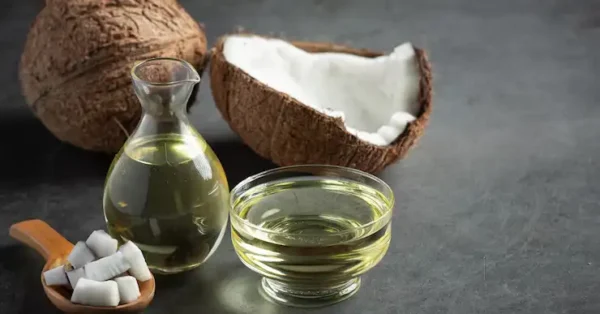

1 comment
Some of the content on this site is truly remarkable and should be bookmarked for future reference. I am curious as to how much effort you put into creating such an outstanding and informative website.